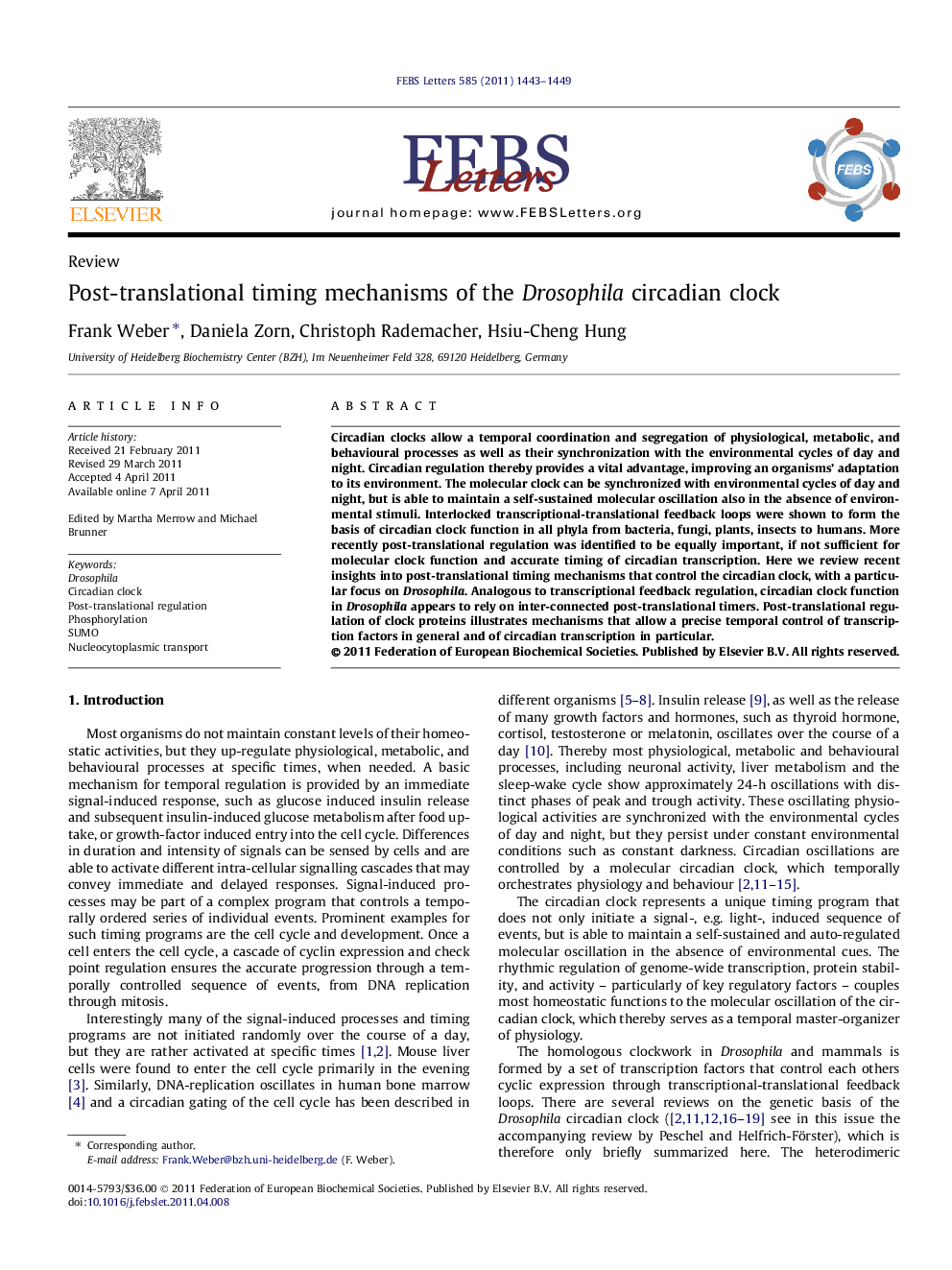| Article ID | Journal | Published Year | Pages | File Type |
|---|---|---|---|---|
| 2048098 | FEBS Letters | 2011 | 7 Pages |
Circadian clocks allow a temporal coordination and segregation of physiological, metabolic, and behavioural processes as well as their synchronization with the environmental cycles of day and night. Circadian regulation thereby provides a vital advantage, improving an organisms’ adaptation to its environment. The molecular clock can be synchronized with environmental cycles of day and night, but is able to maintain a self-sustained molecular oscillation also in the absence of environmental stimuli. Interlocked transcriptional-translational feedback loops were shown to form the basis of circadian clock function in all phyla from bacteria, fungi, plants, insects to humans. More recently post-translational regulation was identified to be equally important, if not sufficient for molecular clock function and accurate timing of circadian transcription. Here we review recent insights into post-translational timing mechanisms that control the circadian clock, with a particular focus on Drosophila. Analogous to transcriptional feedback regulation, circadian clock function in Drosophila appears to rely on inter-connected post-translational timers. Post-translational regulation of clock proteins illustrates mechanisms that allow a precise temporal control of transcription factors in general and of circadian transcription in particular.
